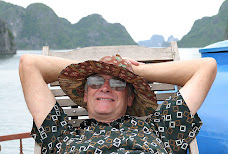The Forgotten Power of the Vietnam Peace Movement
An eloquent call to reclaim our history and honor those who resisted the war, from a key architect of the opposition.
By Tom Hayden JANUARY 5, 2017
Hell, no! Vietnam Veterans Against the War end their 40-hour occupation of the Statue of Liberty, December 1971. (Anthony Camerano / AP)
"...We were a generation divided by big lies and
propaganda, although many had finally achieved reconciliation on personal
levels. We wanted now to honor Vietnam veterans for their sacrifice and
suffering, including the many thousands who had created an unprecedented GI
peace movement and led the effort to end the war.
We believed we must put a stop to false and sanitized history;
real truth and sharing of stories were crucial to any authentic reconciliation.
We had learned, almost accidentally, that the Pentagon was embarked on a
congressionally mandated and funded effort to commemorate the 50th anniversary
of the war’s escalation in 1965, when the first combat troops were sent to
Vietnam...
Even
though the Vietnam War ended in a historic US failure, the hawks who supported
it have gone on to enjoy comfortable roles in successive administrations. Few
of the pro-war pundits, elites, and think-tankers have apologized or resigned
since Vietnam. Instead, they have risen in the ranks of the national-security
establishment while implementing further military follies based on many of the
same assumptions that led to the Vietnam collapse…
The
trivializing of the peace movement’s history has distorted the public memory of
Dr. King, who opposed the Vietnam War in a speech in August 1965, a few months
after the first SDS march on Washington. His most important antiwar orations,
delivered in April 1967 at the Riverside Church in New York and at a mass rally
in Central Park, were met by angry editorials in The
New York Times and The
Washington Post.
He was condemned by the Johnson White House, as
well as by the leaders of labor and most civil-rights organizations. It was
inappropriate, many claimed, for a “Negro spokesman” to stray into the
territory of foreign policy. And though his antiwar message is included on the
plaque at the King Memorial, he is generally remembered today as a civil-rights
leader, not as a man who opposed the Vietnam War and was organizing a Poor
People’s Campaign until his last breath.
The myth persists that freedom can be
expanded at home while repression is imposed and massive bombings escalated
abroad…
…It is not too late to recover and begin again. This is already
happening in the reconciliation process between the Vietnamese and our country.
But we must not forget that for the Vietnamese, the war is not fully over. The
soil of Vietnam is contaminated with Agent Orange. Unexploded ordnance still
covers the landscape. Those deformed by our defoliants will transmit their
disabilities to their children for generations. Each generation of Americans
has a responsibility to help mitigate this permanent damage.
And yet, by the tens of thousands, American veterans and their
families are touring old battlefields, shaking hands and sharing tea with their
old enemies. The sentiments of resolution are palpable. So are the feelings
experienced by visitors to the Vietnam Veterans Memorial in Washington.
The disaster that began in Vietnam still spirals on as a
conflict between empire and democracy. The cycle of war continues its familiar
path. Truth, it is said, is war’s first casualty. Memory is its second."
READ the complete article:
TOM HAYDEN Tom Hayden, the former California state
assemblyman and senator, author, lifelong activist, and Nation editorial board member, died in Santa
Monica on October 23, 2016. He was the author of more than 20 books,
including most recently Hell
No: The Forgotten Power of the Vietnam Peace Movement (Yale) and Listen,
Yankee! Why Cuba Matters (Seven Stories).


No comments:
Post a Comment